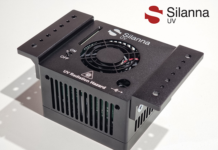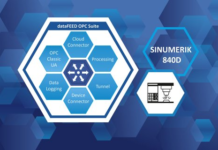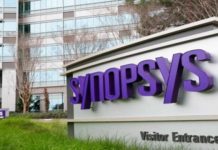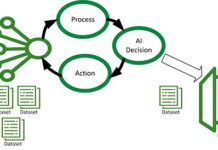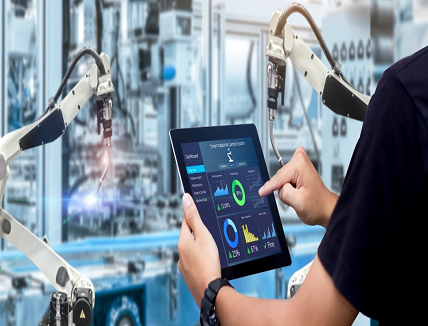
The Industrial Summit 2022 is opening its doors in Shenzhen, China. The fourth edition will be in-person and broadcast online to make it accessible to a broader audience. It will feature 35 in-depth technical presentations and more than 150 demos. There will also be presentations by ST’s President & CEO, Jean-Marc Chery, and other executives, like Jerome Roux, and Francesco Muggeri. Additionally, attendees will witness customer testimonials that will tackle current challenges and what new trends leaders see on the horizon. Visitors will also talk to ST experts, ask questions, and see demos. It is thus a unique opportunity to jumpstart a project or network with other industry leaders.
An event like the Industrial Summit 2022 is also a peek into the Asian region and the Chinese market in particular. Hence, we decided to focus on three innovative demos. The event itself will feature many showstoppers, including, among other things, a smart agriculture area, a life-size smart classroom, and energy generation and storage systems that answer today’s ecological and economic challenges. However, we wanted to delve into solutions that would strongly impact the smart factories in the region. Industrial applications are becoming more efficient, innovative, and interactive. Let’s explore three demos that show how the ST community can benefit from those trends.
Dual Motor Servo Drive

An industry 1st brought by the Industrial Summit 2022
ST is showcasing the first dual-motor servo drive at the Industrial Summit 2022. Until now, typical architecture could only handle one motor at a time. Consequently, when makers needed to control more than one motor, they had to add servo drives. It meant doubling the number of components, a higher bill of materials (BOM), and more points of failure. The new dual-motor servo drive opens the door to a more straightforward design and a 40% reduction in the BOM. The only thing that remains the same is the number of gate drivers since there still is one for each motor.
One shunt current sensing for 2 motors
To make this possible, ST created new devices that were so unique we recently patented them. One of them is the single shunt current sensing element. In a nutshell, each motor previously required one current sensing element. The component is critical to optimize operations and protect the motor as it collects precious information on electrical changes applied to the motor. ST’s breakthrough was the design of a shunt current sensing system capable of handling two motors a once. Special algorithms can decode information from the current sensor to determine to which motor they belong, enabling the use of one shunt current monitor for two motors.
Coming soon…
The demo board features an STM32G4, which includes math accelerators to optimize motor control functions, an STSPIN32G4, an STDRIVE101 gate driver, and an STripFET F7 power MOSFET. ST will sell a dual-motor servo drive reference design in the future but doesn’t have a date yet. However, the community can see it in action at the Industrial Summit where two motors spin simultaneously. If the system synchronizes the motors correctly, an optical illusion allows attendees to see an image showing the STSPIN logo. The demonstration is thus about the first dual-motor servo drive, but also a precise system that could be SIL3 compliant.
30 kW SiC EV charger PFC

A reference design
The Industrial Summit 2022 allows us to showcase ST’s first 30 kW Vienna PFC rectifier with a 98.55% efficiency thanks to silicon carbide devices. Aimed at EV chargers, it provides a reference design to hasten developments. The STDES-30KWVRECT shown at the event comes fully assembled and with firmware, the STSW-30KWVRECT, for the board’s STM32G4.
In this instance, the MCU’s high-resolution timers enable it to drive its SiC devices easily. Hence, attendees and customers see the benefits of a reference design that gives a jump on hardware, thanks to schematics and a BOM, and software features like soft-start procedures or control algorithms that developers can take from our code.
Moving to silicon carbide
The new Vienna PFC rectifier is also a masterclass in the benefits of using SiC devices. It includes SCTW90N65G2V power MOSFETs, STPSC40H12C Schottky diodes, and STGAP2SiC galvanically isolated gate drivers, to name the most important ones. Too often, companies underestimate the importance of a robust and comprehensive solution. Many engineers pick the cheapest devices from various sources to achieve the lowest BOM possible. The problem is that this approach can cost performance and reliability. Driving SiC components isn’t always easy, and omitting SiC is less and less of an option. With ST SiC devices, makers can obtain vastly greater efficiency and reliability. It also means releasing power modules to market faster.
Smart factory automation system
PLC and HMI
Events like the Industrial Summit 2022 are essential reminders that successful factory automation applications must master communication. There’s, for instance, communication with users. Hence, ST is showcasing the STEVAL-SILPLC01 industrial programmable logic control (PLC) board with a display for a human-machine interface. The PLC itself runs on an STM32MP1. Customers tend to favor the microprocessor’s performance and ability to run a Linux environment. The display, however, can use an STM32H7 or the STM32MP1. If companies are looking to reduce costs, they may choose the microcontroller and its free TouchGFX environment. Or developers may use a Linux operating system, famous for its many UI frameworks.

IO-Link master and device solutions
IO-Link is another vital form of communication. The industrial protocol helps configure and monitor devices remotely, which makes it popular in smart factory settings. Hence, ST will display a wide range of industrial IO-Link systems developed by ST’s Automation Competence Center.. There will be the STSYS-ACCFA006, an IO-Link RFID reader, and STSYS-ACCFA007, an IO-Link time-of-flight sensor. Both run on an STM32G0 and come with schematics, a GUI, and an example code. We will also show two industrial actuators. The STSYS-ACCFA005 is a tower light indicator, while the STSYS-ACCFA008 is an air solenoid valve driver. All of them use ST’s L6364 IO-Link transceiver platform that can adapt to different device solutions.
For more information visit ST Blog Here.



